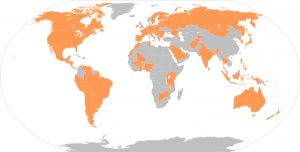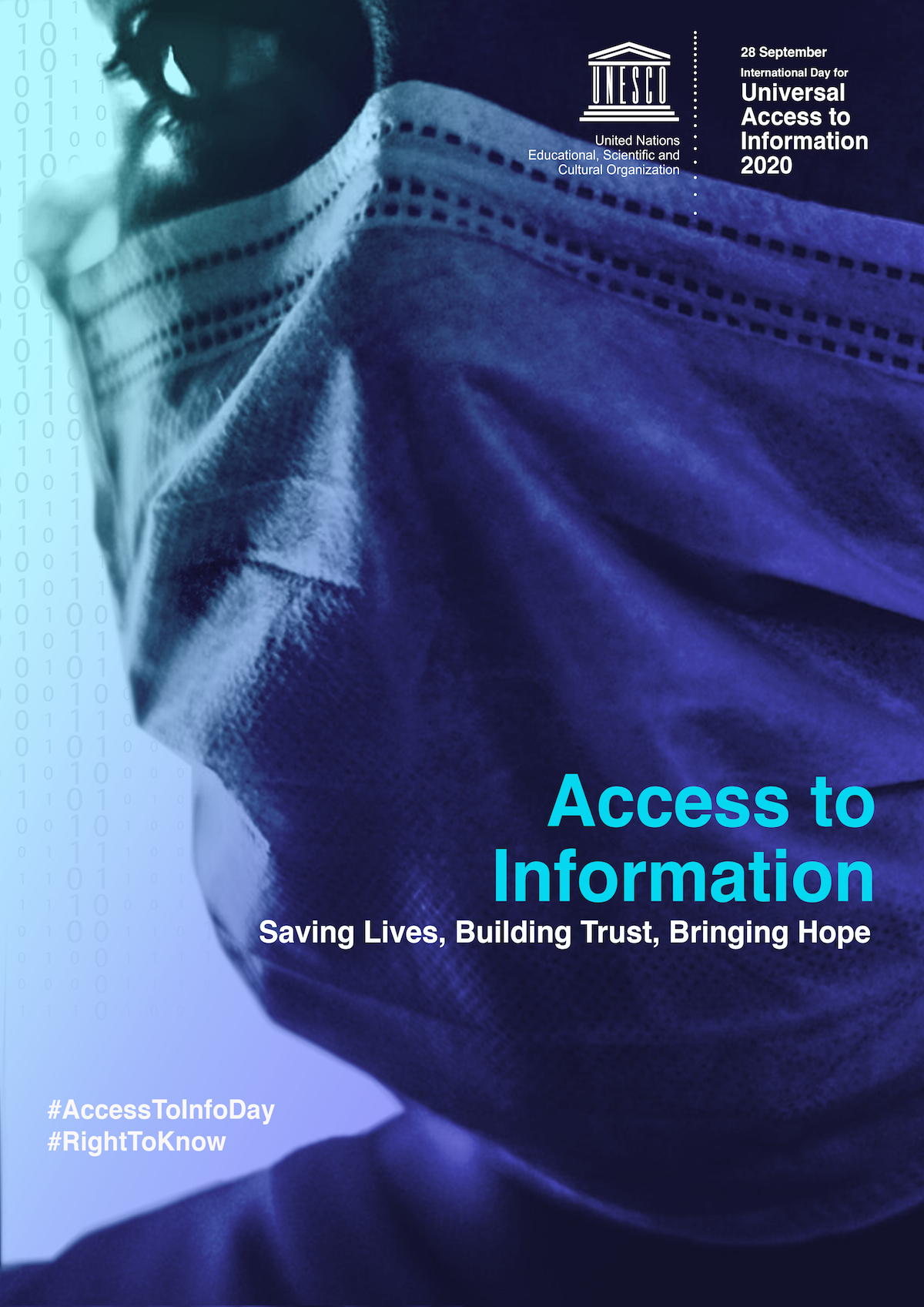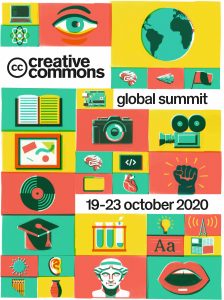Implementing the Marrakesh Treaty in Latin America: A Look at the Experiences of Four CC Community Members
mercredi 30 septembre 2020 à 15:21Four years ago today, the Marrakesh Treaty entered into force. The Treaty is truly special in the international copyright law universe: it has a clear humanitarian and social development dimension and it’s the first international treaty that focuses on the beneficiaries of limitations and exceptions, rather than on the rights of creators or holders of related rights. Adopted at the World Intellectual Property Organization (WIPO) in 2013, the Marrakesh Treaty’s main goal is to create a set of mandatory limitations and exceptions for the benefit of the blind, visually impaired, and otherwise print disabled (VIPs).
Creative Commons and exceptions and limitations—Creative Commons is strongly committed to furthering exceptions and limitations in international copyright law, as we recently stated in relation to our engagement in policy work at WIPO. It’s also worth recalling that, by design, CC licenses do not reduce, limit, or restrict any rights under exceptions and limitations to copyright. If a use of CC-licensed material would otherwise be allowed because of an applicable exception or limitation (such as those provided in the Marrakesh Treaty, where they apply), one does not need to rely on the CC license or comply with its terms and conditions. This is a fundamental principle of CC licensing. *Learn more.
The Marrakesh Treaty is a huge step forward for VIPs around the world, as it facilitates access to works in adapted versions. However, making sure the treaty works on the ground in each country or institution is not necessarily plain sailing. Alongside the formal implementation of the treaty into national law, practical issues arise and pose challenges to those working hard to provide VIPs access to the widest possible range of works in formats that are accessible to them (Braille, full audio, Daisy, etc.).

In this blog post, four members of the Creative Commons Global Network, Virginia Inés Simón, Carina Patrón, Carolina Botero and Mariana Valente share their successes and challenges in the practical implementation of the provisions of the Marrakesh Treaty in Argentina, Uruguay, Colombia and Brazil, respectively. In their own words, they present their projects and talk about how they envision the next steps and the road ahead.
Argentina – Virginia Inés Simón
The copyright law of Argentina includes an exception that allows people with visual disabilities to access texts in accessible formats. However, the flexibility provided under this exception falls short of guaranteeing the right of access to information to people with certain disabilities, in particular people with disabilities that cause reading difficulties, and not necessarily visual disabilities. Furthermore, this exception is limited to the territory of Argentina and does not cover the cross-border sharing of accessible works.
In June 2018, Bill No. 1762/18 was introduced to implement the Marrakesh Treaty in Argentina. To date, it has been partially sanctioned but is not yet in force. During the drafting process, the Observatory of the Marrakesh Treaty in Latin America, among other organizations, was able to have its suggestions reflected in the text of the bill. Some aspects of the bill are really positive, such as the broad scope of the concept of beneficiaries, which incorporates people with hearing disabilities and consequently extends the scope of accessible formats to include sign language in, for example, video books. Other points are left to subjective interpretation, such as the provision on commercial availability, which is not mandatory.
Once the bill will have been enacted, the challenge of effectively implementing the Treaty will remain through regulation. One of the most important issues will be to ensure that the country’s great library institutions—the National Library, the Library of Congress of Argentina, the National Library of Teachers, the National Commission of Popular Libraries—will assume various responsibilities in the process of carrying out collaborative work to reach all beneficiaries. Any type of regulation will also need to define the management of the national repertoire, on which we hope that the use of free software can be promoted to guarantee digital sovereignty, data protection and the right to privacy of people with disabilities.
Full implementation of the Marrakesh Treaty in Argentina will allow one of the largest accessible collections in Latin America to be shared through the cross-border exchange of works: the Tiflolibros Library.
The Observatory of the Marrakesh Treaty in Latin America is currently providing a certificate course on the Marrakesh Treaty, with the aim of drafting regional guidelines. This proposal has garnered the interest of key actors across Latin America: national libraries, ministries of education, intellectual property offices, libraries, activists, and beneficiaries.
The most important challenge for our region, after almost 20 years of Creative Commons’ existence, is to promote the idea of accessible open access to encourage our communities to broaden the concept of “open.” The Marrakesh Treaty is a strong reminder that CC licenses and the public domain can act as catalyzers for the enjoyment and exercise of several rights dependent on the fundamental right to read.
Uruguay – Carina Patrón
Uruguay was the first country in Latin America to implement the Marrakesh Treaty, ratifying it in 2015 and approving its regulation in 2017. In this context, the “BIDYA Project” (for “Digital Accessible Library”, in Spanish) was developed in 2016 by the Núcleo REAA (Interdisciplinary working group on open educational resources (OER) of the Universidad de la República) and the National Blind Union. Creative Commons Uruguay is part of the OER interdisciplinary working group of the Universidad de la República and took part in the BIDYA Project, particularly in running training activities.
The BIDYA project consisted in several stages that covered different aspects that the Marrakesh Treaty and the national law required as part of the regulation, for example, the adaptation of materials in accessible formats, cross-border exchange and the establishment of authorized entities.
This project created several tools, such as procedural guidelines for the creation and dissemination of an accessible library and information literacy. Several training courses were delivered for blind people or people with low vision and for librarians, including a hands-on day where the general public was invited to participate in work stations to help create accessible materials. This project also played an active role in the creation of the Observatory for the Marrakesh Treaty in Latin America.
Some of the outcomes of this project are being used by the libraries of different faculties at the Universidad de la República that have blind or low vision students. The Library of the Legislative Palace of Uruguay also uses these guidelines when designing its publications.
An article on CC Uruguay’s initiative will be published soon on the CC Global Network Medium Publication.
Colombia – Carolina Botero
Colombia is not yet a party to the Marrakesh Treaty. It has signed but not ratified it yet. The ratification project moved between different ministries and offices until it finally reached Congress, which was meant to vote on the issue mid-September. No public notice of the vote result had been issued at the time of drafting. Our overall impression is that the government considers that Law No. 1680 of 2012—which includes the first exception for blind people in the country—covers the scope of flexibilities provided by the Marrakesh Treaty.
Unfortunately, this is not the case. Law 1680 is only for blind people and contains several other restrictions. For instance, it doesn’t allow for cross-border exchanges of works, a very important provision introduced by the Marrakesh Treaty. In short, Law 1680 is incredibly narrow in comparison to what the Marrakesh Treaty offers.
An interesting opportunity to discuss the need to broaden exceptions and limitations, including those provided under the Marrakesh Treaty, might present itself next year. After the implementation process of the free-trade agreement between Colombia and the United States of America on issues of copyright, a law that reformed the copyright regime in Colombia established that, every three years, the Copyright Office must open a public hearing to analyze how the public interest is reflected in Colombian copyright law. The first public hearing will take place in 2021. CC Colombia will seize that opportunity to push forward for the ratification and implementation of the Marrakesh Treaty in Colombia.
Brazil – Mariana Valente
Brazil ratified the Marrakesh Treaty in 2015, and, although the government had been active in its negotiation, it only got promulgated in October 2018. In 2020, the government’s Special Secretariat for Culture published a public consultation for a decree that will detail the implementation of the treaty.
Creative Commons Brazil studied the text and submitted a proposal, which was also signed by the CC Chapters of Uruguay, Argentina and Colombia. Al Sur, a coalition of 11 Latin-American organizations, also submitted their own comments, with the help of members of CC Brazil and CC Colombia. In both cases, our concerns were that a few provisions on this text established inadequate burdens upon the “authorized entities” for their use of the exception and that the consultation asked whether the “commercial availability” clause should be implemented.
Drawing from international experience, we argued that such a clause hollows out the potentials of the treaty, because of the hardships it imposes on organizations, and the legal uncertainties it creates. All the public comments posted on the website point to the same direction.
At this stage, the Brazilian government is expected to give feedback on the consultation, and publish its decision on the matter. We hope that the positions of organizations working with VIPs, libraries and the public interest in copyright will be taken on.
If you would like to support this process, please get in touch with CC Brazil—we will gladly connect you with a larger network of people working on this.
Creative Commons’ community is making incredible strides in fighting for the rights of VIPs and making sure they have as easy and hassle-free access to a broad range of creative content as possible. Do you also wish to share your experience with implementing the Marrakesh Treaty? Get in touch: info@creativecommons.org.
*Creative Commons and exceptions and limitations (continued):
In practice, this means that if the material is licensed under a CC license that doesn’t allow adaptations (NoDerivatives or “ND” condition), the terms of the license cannot prevent sharing an adaptation of the material that would otherwise be allowed under an exception. To the extent that an exception or limitation, articulated in national law through the implementation of the Marrakesh Treaty or otherwise, allows adaptations necessary to make material accessible to VIPs, that activity is exempt from the restrictions of the ND condition. Those adaptations would not violate the terms of the license.
Furthermore, anyone can make adaptations of ND-licensed materials so long as they don’t share those adaptations. So, for example, were a blind person to feed an ND-licensed work into a program that resulted in either an audio reading or Braille content, that would be permissible under the terms of the license, so long as the person wouldn’t share it, e.g. by posting it on the internet.
The post Implementing the Marrakesh Treaty in Latin America: A Look at the Experiences of Four CC Community Members appeared first on Creative Commons.
 Today, on September 28, UNESCO marks the
Today, on September 28, UNESCO marks the 
 Fill out this form to attend the CC Global Summit!
Fill out this form to attend the CC Global Summit!